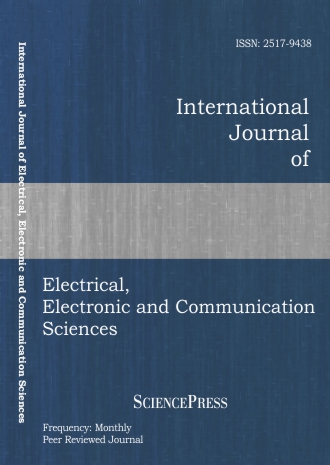
Scholarly
Volume:10, Issue: 1, 2016 Page No: 62 - 68
International Journal of Electrical, Electronic and Communication Sciences
ISSN: 2517-9438
1077 Downloads
Effect of Integrity of the Earthing System on the Rise of Earth Potential
This paper investigates the effects of breaks in bonds,breaks in the earthing system and breaks in earth wire on the rise of
the earth potential (EPR) in a substation and at the transmission tower
bases using various models of an L6 tower. Different approaches
were adopted to examine the integrity of the earthing system and the
terminal towers. These effects were investigated to see the associated
difference in the EPR magnitudes with respect to a healthy system at
various locations. Comparisons of the computed EPR magnitudes
were then made between the healthy and unhealthy system to detect
any difference. The studies were conducted at power frequency for a
uniform soil with different soil resistivities. It was found that full
breaks in the double bond of the terminal towers increase the EPR
significantly at the fault location, while they reduce EPR at the
terminal tower bases. A fault on the isolated section of the grid can
result in EPR values up to 8 times of those on a healthy system at
higher soil resistivities, provided that the extended earthing system
stays connected to the grid.
Authors:
References:
[1] IEEE Std-80-2000, “IEEE Guide for Safety in AC Substation